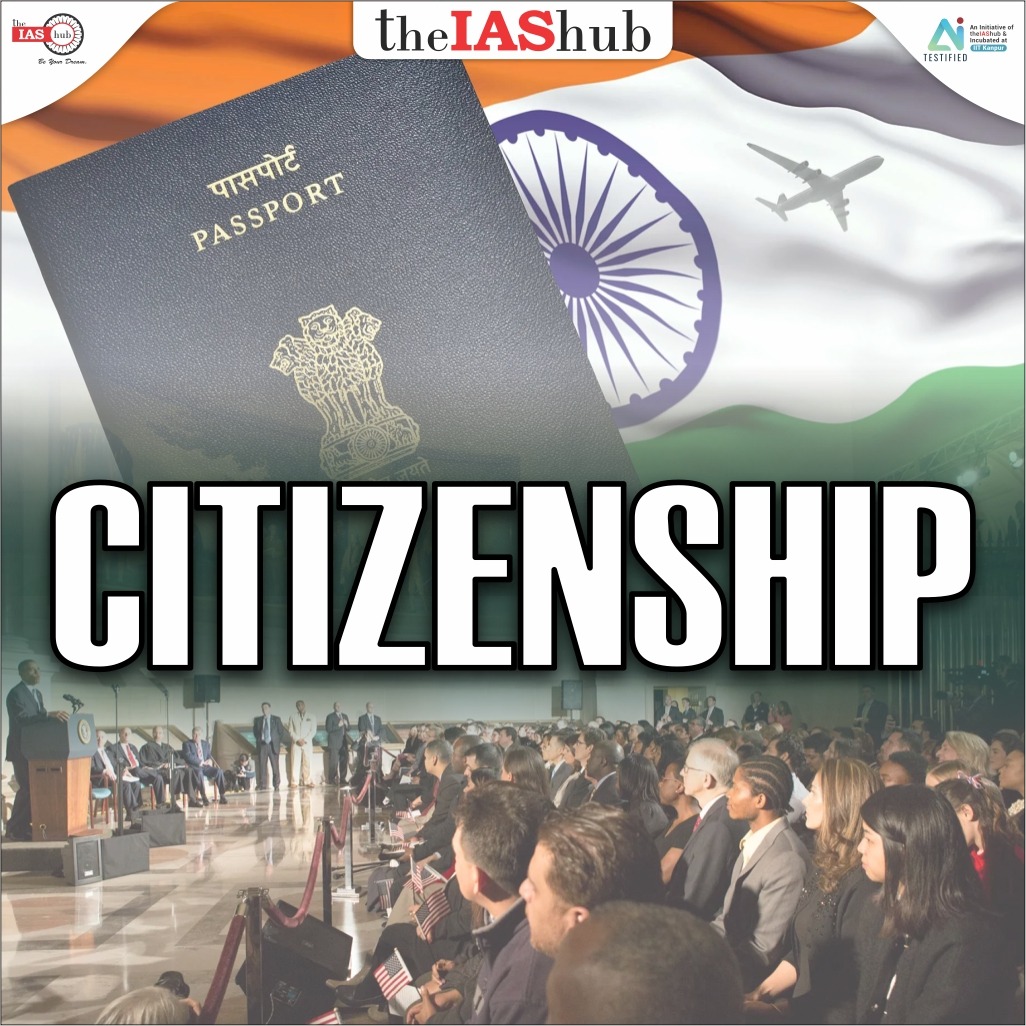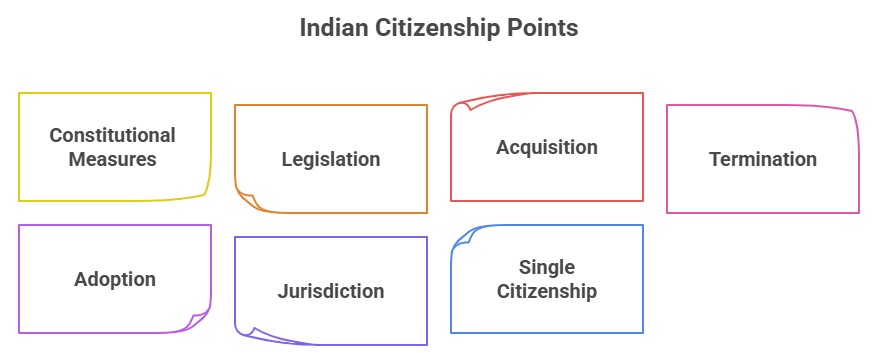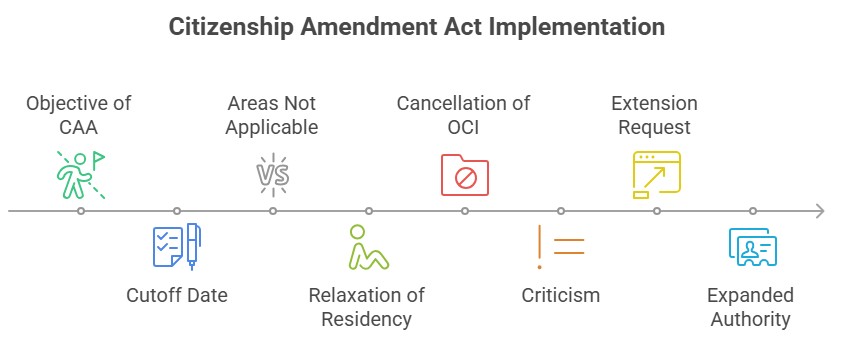Learn about Indian Citizenship – its constitutional provisions, Citizenship Act 1955, CAA 2019, NRC, NPR, OCI, acquisition, termination, and current issues. Explore rights, laws, and debates shaping Indian citizenship.


Citizenship encompasses the concept of being a full and equal member of a political community, with a shared political identity and entitlement to specific rights. It establishes an individual's affiliation with a particular country, like India, Japan, or Germany, representing the relationship between an individual and the state.


|
Myanmar Refugees case: In 2021, High Court of Manipur allows 7 Myanmar nationals to travel to Delhi for UNHCR protection. Court cites India's commitment to human rights and non-refoulement under Article 21. |
Citizenship in India is of great importance as it provides individuals with legal recognition, rights, and privileges, while also shaping their sense of identity and belonging to the nation.


Refine your answer writing skills and elevate your UPSC preparation with personalized support and expert feedback.
Fill out the form to get started with the program or any other enquiries !








Are you dreaming of becoming an IAS officer? Then, IAShub can be your best guide. It is one of the Best IAS Coaching in Delhi. Many students who want to clear the UPSC exam join IAShub for learning. The institute gives both online and offline classes. Their teachers are experienced and helpful. They easily explain every topic. Students also get notes, tests, and tips to do well in the exam.
IAShub is in Delhi and is trusted by many UPSC students. It offers coaching for every part of the UPSC exam – Prelims, Mains, and Interview. The classes are simple and easy to understand. The teachers are experts and guide students in the right way. IAShub is also known for its helpful notes, test series, and answer-writing practice. IAShub is the best coaching in Delhi and also gives UPSC Online Classes. This helps students from any place in India to learn. The online classes are live and also recorded. So, students can watch them anytime. These classes cover the full UPSC syllabus.
Here are some important services provided by IAShub:
The UPSC Civil Services Exam has three parts:
This exam is tough, but with the right guidance, it becomes easy to manage. Students must study smart and stay regular.
IAShub supports students from the beginning to the end. It gives the right books, tests, and notes. The classes are easy to follow, and the teachers are always ready to help. Students get personal doubt sessions too. The test series and answer checking help students learn where they need to do better. Also, free study materials save time and money.
IAShub also guides students during the final stage – the interview. Experts take mock interviews and give useful tips. This full support makes IAShub one of the best IAS coaching in Delhi.